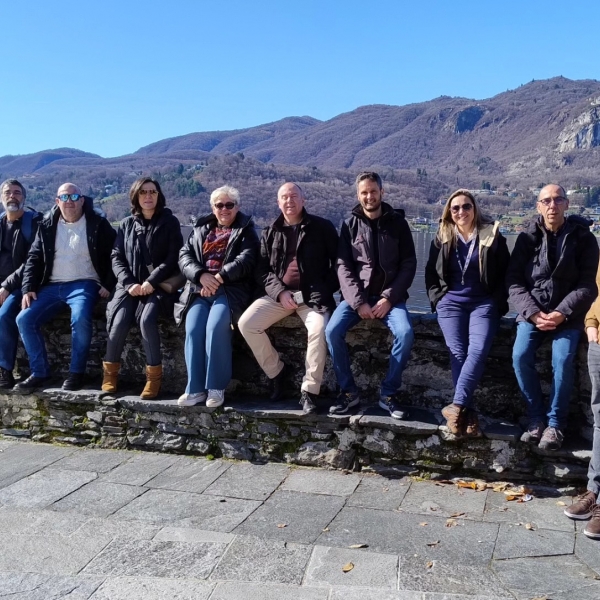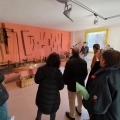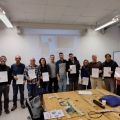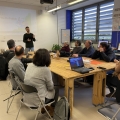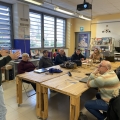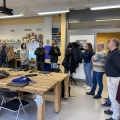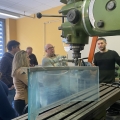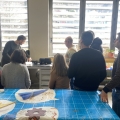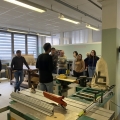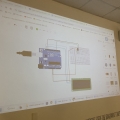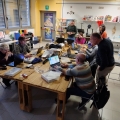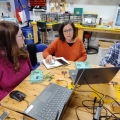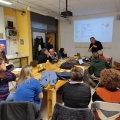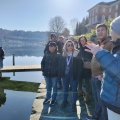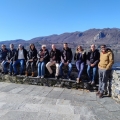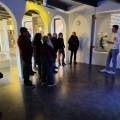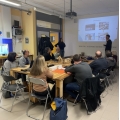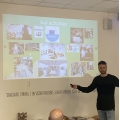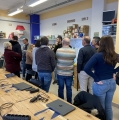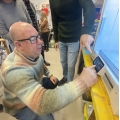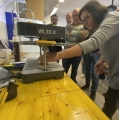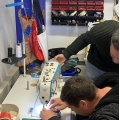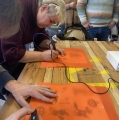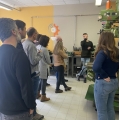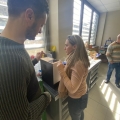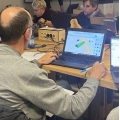FABLAB, MAKERSPACE & SCHOOL 4-8/03/2024
Dal 4 all'8 Marzo 2024 abbiamo avuto il piacere di ospitare nove docenti provenienti dal sud del Portogallo, grazie alla partnership con Buinho Fablab e al programma Erasmus+.
Durante il workshop "Fablab, Makerspace & School", abbiamo condiviso conoscenze tecniche e organizzative, mostrando come integrare le discipline STEAM attraverso progetti innovativi. È stato stimolante confrontarsi sulle modalità di implementazione dei laboratori nelle loro scuole e abbiamo avuto anche l'opportunità di esplorare alcune istituzioni locali, tra cui l'Istituto Comprensivo Beltrami e il Museo Rodari.
È stata un'esperienza arricchente che ci ha permesso di creare legami internazionali nel campo dell'istruzione innovativa!
Corso realizzato in collaborazione con VCO Formazione.
DAY1
9:00 - 10:00
Welcome session and introduction
We will receive the participants in the coworking space, making a short introduction to We Do Fablab's experience in the educational field. We will also dedicate some time to getting to know the partecipants.
10:00 - 12:00
Tour and live show
We will visit different areas of We Do Fablab, dedicated to analogic and digital fabrication, we will test tools, observing spaces organization and some interactive educational projects.
13:00 - 15:30
3d modeling and 3d printing
Let's drawing the reality as we effectly see it, in three dimensions!
We will learn how to use a CAD online software, boolean operations and how to develop things in order to print them!
Before to use a FDM 3d printer we will learn how to use a Slicer software in order to optimize the printing process.
15:30 - 17:00
2d drawing and lasercutter
What's the difference between vector graphic and raster graphic?
Let's engrave and cut logos taking in consideration some safety and operational advices on how to incorporate this technology in the makerspace and in the classroom activities.
DAY2
9:00 - 10:00
2d drawing and vinyl cutter
Using online and offline tools we will convert raster images in to vector images, in order to be processed by cnc machines. Let's having fun creating logo stickers.
10:00 - 11:00
Block-based coding
Instead of typing a coding language, we will drag and drop jigsaw-like pieces together to build interactive animations.
11:00 - 12:30 13:30 - 17:00
Microcontrollers
Using low-cost microcontrollers and block-based programming we will create physical computing projects.
Arduino is used in professional industrial systems and is suited for those who want to carry out studies related to electronics or the multimedia world.
Micro:bit is well suited for the creation of small interactive projects, starting from primary schools, to make the approach to steam disciplines more engaging
DAY3
9:00 - 11:30
Visit schools
We will discover how it works the Training Agency that host We Do Fablab and and how the two realities collaborate.
Not so far we will visit the public comprehensive school Beltrami that hosts students from kindergarten to middle school and his Making Space.
11:30 - 12:30
How to setup a makerspace in a school
How to involve students, parents and the community in the developing process? Tools are not the most important aspect in setting up a makerspace. Maker culture and STEAM approaches. Managing spaces and persons.
13:30 - 15:00
Insights and project work show cases
Thanks to some visionary teachers let's discover some innovative educational projects created with the contribution of We Do Fablab.
DAY4
8:00 - 18:00
Cultural day
Orta San Giulio
We will immerse ourselves in the narrow streets of the ancient village to discover a history intimately linked to that of Lake Orta. Rich in religious architecture and natural areas, it is the perfect destination for those who want to discover one of the most beautiful villages in Italy.
If weather permits, it will be possible to make a short visit to San Giulio island.
Omegna
Omegna, a municipality of over 15 thousand inhabitants in the province of Verbano Cusio Ossola, rises at the northern end of Lake Orta, the most romantic of Italy's lakes. A decidedly fascinating body of water of glacial origin, among the smallest and most characteristic in Northern Italy
It is precisely Lake Orta that offers evocative bucolic glimpses rich in woodland vegetation in which suggestive villages and hamlets are set that follow one another along the Cusio itinerary with significant historical-artistic testimonies.
Omegna is the native town of the famous writer Gianni Rodari and hosts some of the most important household items industries. Did you know that the moka coffee maker originates in Omegna?
We will visit the housewares museum and the Rodari museum.
DAY5
9:30 - 11:30
Insights and delivery of the final certificates
Teachers reports:
https://aecastroverde.pt/2024/03/13/erasmus-fablab-makerspaces-school/
https://www.aeourique.net/post/mobilidade-erasmus-it%C3%A1lia
Torna agli eventi

